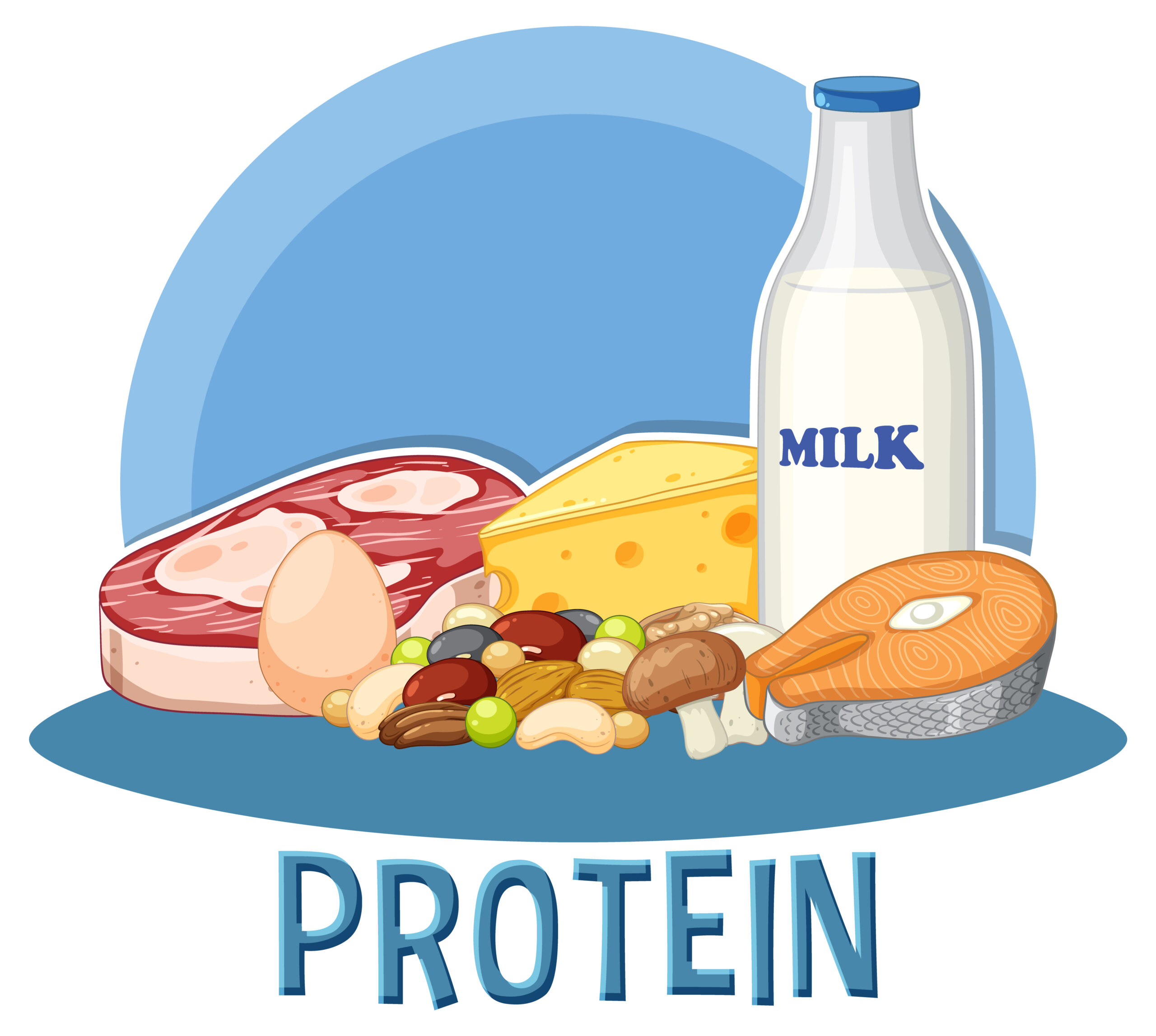Building muscle isn’t just about hitting the gym. Nutrition, particularly protein intake, plays a crucial role in muscle growth and recovery. Protein is the building block of muscles, and adequate consumption is essential for repair, growth, and overall performance. Understanding how much protein to consume, its timing, and its sources can significantly enhance muscle-building efforts.
In this blog, we’ll explore the science of protein and muscle growth, provide data-backed insights, and answer frequently asked questions related to protein intake.
Why Is Protein Important for Muscle Growth?
Proteins are made up of amino acids, which are essential for repairing muscle tissue damaged during exercise. When you lift weights or perform resistance training, your muscle fibers undergo microscopic tears. Protein helps repair these tears, leading to increased muscle size and strength over time.
Additionally, consuming enough protein is crucial for maintaining a positive nitrogen balance in the body, which supports muscle synthesis.
How Much Protein Do You Need to Build Muscle?
The amount of protein required varies depending on factors like age, gender, activity level, and fitness goals. For individuals aiming to build muscle, research provides clear guidelines:
- Protein per kg for muscle gain: The general recommendation for muscle growth is 1.6 to 2.2 grams of protein per kilogram of body weight per day.
- Studies on protein intake and muscle growth suggest that higher protein intakes, especially in physically active individuals, optimize muscle recovery and growth.
Example Calculations
Here’s how to determine your protein needs using a protein to build muscle calculator:
| Weight (kg) | Activity Level | Recommended Protein Intake (g/kg) | Daily Protein Requirement (g) |
|---|---|---|---|
| 60 | Moderate Active | 1.6 | 96 |
| 75 | High Active | 2.0 | 150 |
| 90 | Very Active | 2.2 | 198 |
How Much Protein to Build Muscle and Lose Fat?
If your goal is to build muscle and lose fat simultaneously, protein intake becomes even more critical. Studies suggest consuming higher protein levels, around 2.2 grams per kilogram of body weight, to preserve muscle mass while in a calorie deficit. This helps maintain lean body mass while shedding fat.
How Much Protein Does a 75 kg Man Need to Build Muscle?
For a 75 kg individual focused on muscle growth:
- Minimum Intake: 1.6 g/kg = 120 g/day
- Optimal Intake: 2.2 g/kg = 165 g/day
Dividing this across 4-6 meals a day ensures steady amino acid availability, supporting continuous muscle repair and growth.
Does Protein Build Muscle Without Working Out?
It’s a common misconception that eating more protein alone will build muscle. However, does protein build muscle without working out? The answer is no. While protein aids muscle repair, strength training or resistance exercises are essential for stimulating muscle growth. Without exercise, excess protein is either excreted or stored as fat.

Protein Sources for Muscle Growth
To maximize muscle growth, prioritize high-quality protein sources that contain all essential amino acids.
Animal-Based Proteins
- Chicken breast
- Eggs
- Greek yogurt
- Lean beef
Plant-Based Proteins
- Lentils
- Quinoa
- Tofu
- Chickpeas
Whey and Casein Protein
Whey protein is fast-digesting, making it ideal post-workout, while casein is slow-digesting, suitable before bedtime to sustain muscle repair overnight.
Protein Intake for Women vs. Men
When considering how much protein to gain muscle female, women generally require slightly less protein than men due to differences in muscle mass and size. However, the guidelines remain consistent at 1.6–2.2 g/kg for muscle building.
Timing and Distribution of Protein
Proper timing and distribution of protein intake enhance muscle protein synthesis. Spreading your protein intake evenly throughout the day in meals containing 20–30 grams of protein ensures optimal absorption.
Example Meal Plan
| Meal | Protein Source | Protein Content (g) |
|---|---|---|
| Breakfast | 3 boiled eggs + spinach | 21 |
| Snack | Greek yogurt + almonds | 18 |
| Lunch | Grilled chicken salad | 35 |
| Post-workout | Whey protein shake | 25 |
| Dinner | Salmon + quinoa | 40 |
Common Mistakes in Protein Consumption
- Overeating Protein: Consuming excessive protein doesn’t provide additional muscle-building benefits and may strain the kidneys.
- Skipping Protein Post-Workout: Muscle recovery is compromised without sufficient protein intake after training.
- Inadequate Plant-Based Options: For vegetarians, combining incomplete proteins (e.g., rice and beans) ensures all essential amino acids are consumed.
FAQ: Protein and Muscle Growth
1. How much protein to build muscle?
Aim for 1.6–2.2 grams per kilogram of body weight per day for optimal results.
2. How much protein does a 75 kg man need to build muscle?
Between 120–165 grams of protein per day.
3. How much protein to gain muscle female?
For women, the recommendation is also 1.6–2.2 g/kg of body weight daily, depending on activity levels.
4. Does protein build muscle without working out?
No, muscle growth requires the combination of protein intake and strength training.
5. How much protein to build muscle and lose fat?
Consume 2.2 grams per kilogram of body weight per day, especially during calorie deficits.


